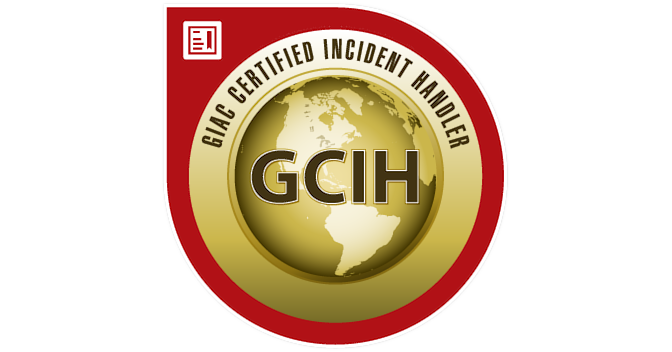In today’s interconnected digital landscape, cybersecurity incidents are inevitable. Organizations must be equipped with skilled professionals capable of effectively responding to and mitigating these incidents to minimize potential damage and protect sensitive data. The Certified Incident Handler (GCIH) certification offered by the Global Information Assurance Certification (GIAC) is designed to validate individuals’ expertise in incident handling and response. Let’s delve into the essential aspects of the GCIH certification, addressing the who, what, when, where, why, and how.

Understanding GCIH Certification
What is GCIH Certification?
The Certified Incident Handler (GCIH) certification is a globally recognized credential that validates professionals’ skills in detecting, responding to, and resolving cybersecurity incidents effectively. It demonstrates proficiency in incident handling methodologies, tools, and techniques essential for maintaining the security posture of organizations.
Why Pursue GCIH Certification?
- Industry Demand: With the rising frequency and complexity of cyber threats, there is a growing demand for skilled incident handlers who can mitigate security incidents promptly and efficiently.
- Career Advancement: GCIH certification enhances career opportunities in cybersecurity, enabling professionals to pursue roles such as Incident Responder, Security Analyst, SOC Analyst, and Incident Response Manager.
- Organizational Preparedness: Certified incident handlers play a crucial role in strengthening organizational resilience by implementing incident response best practices and minimizing the impact of security breaches.
Eligibility and Prerequisites
- Who Can Pursue GCIH Certification?
Information security professionals responsible for incident detection, analysis, containment, eradication, and recovery within organizations.
Individuals involved in incident response, threat hunting, digital forensics, and security operations across various industries and sectors.
- What are the Prerequisites?
While there are no specific prerequisites for taking the GCIH certification exam, candidates should possess foundational knowledge and experience in cybersecurity and incident handling.
Certification Process and Requirements
- When to Start the Certification Journey?
Professionals can begin their GCIH certification journey when they feel confident in their incident handling skills and are prepared to undertake the rigorous training and examination process.
- Where to Obtain Certification?
GCIH certification is offered by the Global Information Assurance Certification (GIAC), a leading provider of cybersecurity certifications recognized worldwide. The certification exam can be taken online or at designated proctored testing centers.
Training and Preparation
How to Prepare for GCIH Certification?
Enroll in GCIH certification training courses offered by authorized training providers or GIAC-certified instructors.
Utilize study materials, practice exams, and hands-on labs to reinforce understanding of incident handling concepts, tools, and techniques.
Exam Format and Content
What Does the GCIH Exam Cover?
The GCIH certification exam assesses candidates’ knowledge and skills across various incident handling domains, including incident detection and analysis, malware analysis, network forensics, and incident response methodologies.
The exam format typically consists of multiple-choice questions, as well as hands-on simulations to evaluate candidates’ ability to apply incident handling techniques in simulated scenarios.
Benefits of GCIH Certification
Why is GCIH Certification Valuable?
GCIH certification validates professionals’ expertise in incident handling and response, enhancing their credibility and marketability in the cybersecurity domain.
Certified incident handlers contribute to organizational resilience by effectively identifying, containing, and mitigating security incidents, thereby safeguarding critical assets and maintaining business continuity.
Career Opportunities and Growth
- Where Can GCIH Professionals Work?
GCIH-certified professionals are in demand across various industries, including finance, healthcare, government, technology, and defense.
Opportunities exist in organizations with dedicated incident response teams, security operations centers (SOCs), managed security service providers (MSSPs), and consulting firms specializing in cybersecurity.
- What Career Paths are Available?
Career paths for GCIH professionals include roles such as Incident Response Analyst, Threat Intelligence Analyst, Cybersecurity Consultant, Digital Forensics Investigator, and Security Operations Manager.
Advanced certifications and specialized training can further enhance career prospects, leading to leadership positions in incident response and cybersecurity management.
Conclusion
In conclusion, obtaining GCIH certification is a strategic investment for cybersecurity professionals seeking to specialize in incident handling and response. By acquiring this credential, individuals validate their expertise, enhance career opportunities, and contribute to organizational resilience in the face of evolving cyber threats. With comprehensive training, diligent preparation, and a commitment to continuous learning, aspiring GCIH professionals can embark on a rewarding journey towards becoming trusted incident handlers and cybersecurity leaders.